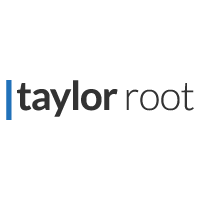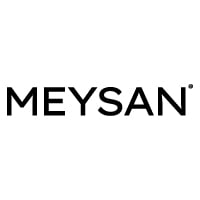

Leader Legal & Compliance MENA/MED | Grohe/LIXIL










Sara Darazirar-Vonk
Leader Legal & Compliance MENA/MED | Grohe/LIXIL
How do you approach managing legal aspects during periods of instability or crises, and how does your legal strategy align with the broader business strategy to ensure the organisation’s resilience?
As a legal professional, I recognise the importance of conveying to the business that our function should not be confined to a reactive position, only stepping in when challenges or legal issues arise. Instead, I am committed to ensuring that the legal team is integrally involved from the very beginning, working collaboratively with the business to understand its objectives, approach, and, most importantly, to identify potential risks and mitigate them.
My involvement begins at the earliest stages of the decision-making process, ensuring that the legal function has a seat at the table alongside other key stakeholders meeting on a weekly basis to go through every aspect of the business. By doing so, I can closely monitor emerging risks, engage in clear and ongoing communication with all relevant parties, and develop a comprehensive understanding of the business strategy while keeping legal and compliance at the core of the discussion. I ensure to adopt a “true business partner” approach and incorporate such concept into the organisation’s key objectives, I have been able to identify potential challenges before they materialised in the last two years, allowing therefore the company to navigate complex legal landscapes with agility.
Furthermore, I have taken the initiative to create alongside HR, an internal meeting with key stakeholders, particularly from the corporate function and business leaders, to discuss critical situations and how to map, predict, and implement guidelines that protect both the company and its employees in times of crisis—before they happen. In our ever-changing environment, I believe it is vital to adopt a proactive approach and align closely with the organisation’s main objectives and vision. This proactive stance is not just a desirable trait but a crucial necessity that translates into being a reliable and true business partner that can to a certain extent predict what might take place.
What do you see as the major legal challenges for businesses in the region over the next five years, and how are you preparing to address them?
Over the next five years, businesses in the Middle East and North Africa (MENA) will face a complex and rapidly evolving legal landscape, driven by significant regulatory changes and emerging challenges.
As MENA countries introduce or enforce data privacy and protection laws increasingly aligned with the General Data Protection Regulation (GDPR) in Europe, businesses must invest in robust data management systems to ensure compliance. The variation in data protection laws across the region adds complexity, making adherence to these regulations a substantial and ongoing challenge. Additionally, the rise in cybersecurity threats, as we have seen a real-life example recently, underscores the need for strong cybersecurity measures. Legal obligations related to data breaches, reporting requirements, and resultant liabilities have become critically important, especially considering recent high-profile incidents.
ESG compliance is gaining traction across the MENA region, with countries like the UAE and Saudi Arabia taking leading roles in addressing climate change. These nations are implementing more stringent environmental regulations, requiring businesses to adapt to new standards related to carbon emissions, waste management, and sustainable practices. Furthermore, the increasing focus on corporate governance and social responsibility necessitates alignment with evolving legal frameworks. Failure to meet these obligations could result in significant legal challenges as new laws and regulations are enforced to ensure compliance with ESG standards.
The region’s geopolitical instability and efforts toward economic diversification are driving the enactment of new laws and local regulations. These changes add layers of complexity to the management of cross-border transactions, especially under varying regulatory environments across the GCC and North African countries.
The region is also witnessing notable trends in digitalisation, the rise of AI, and the growing use of cryptocurrencies. The UAE is positioning itself as a leader in digitalisation, with government initiatives aimed at transitioning to fully digital operations. This shift brings both opportunities and legal challenges, particularly in navigating AI-related laws and the legal implications of digital currencies.
To effectively navigate these challenges, businesses must adopt a proactive approach as mentioned previously. Staying informed about geopolitical developments, regulatory changes, and legal trends is essential and vital to any business survival. Building a robust internal legal and compliance framework will ensure that businesses are not merely reactive but actively anticipating and mitigating potential risks. Lastly, I strongly advocate for investing in legal technology and operations that has become a necessity especially recently, not just to enhance legal capabilities, but to strengthen the integration of the legal function within the broader organisation.